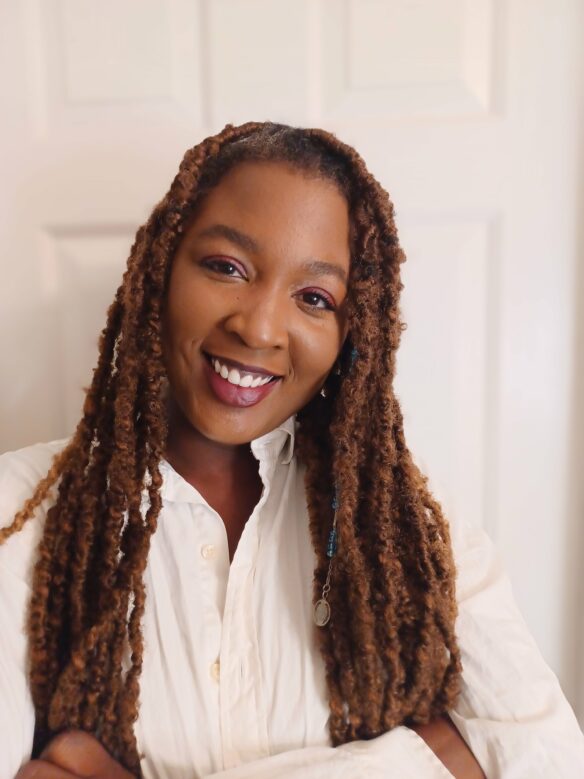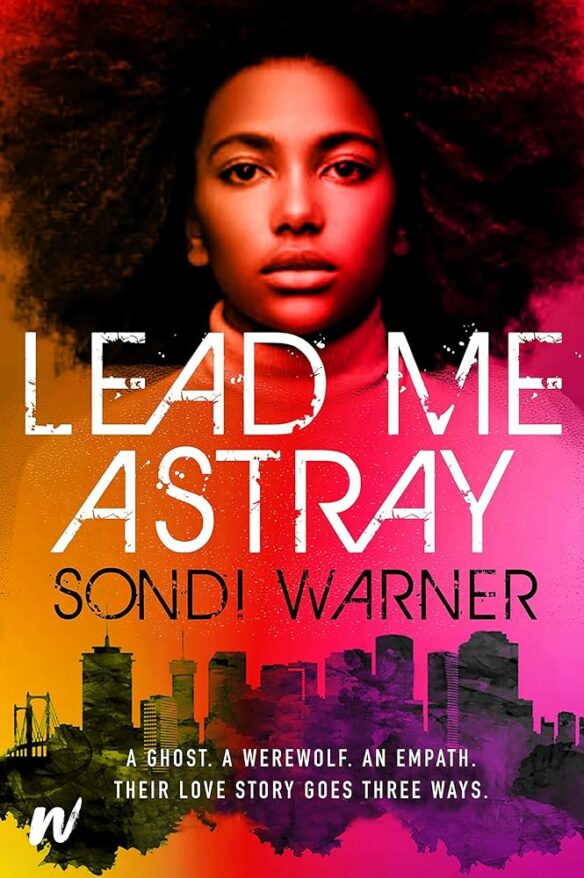

Sondi Warner is an author with a flair for the paranormal. Her debut novel, Lead Me Astray, was selected as an Amazon Editor’s Pick Best Romance in March 2022 and published by W by Wattpad Books. Sondi is also an avid astrologer, gardener, and painter, who draws inspiration from the natural world and the cosmos. She shares her home in Baton Rouge, Louisiana, with her soulmate, their four amazing kids, and their mischievous pets, Se7en and Jack. Sondi’s new sci-fi title, Eidola Mater: Mother of Gods, is posting exclusively to Wattpad in April 2024 — check it out here.
By Sondi Warner: Great science fiction and fantasy transcend mere entertainment, sparking a profound awareness of the boundless potential of human creativity. These genres transport readers to worlds where reality is reimagined and perceptions are challenged—like the perception that women are not among the primary architects of sci-fi/fantasy.
In the vast cosmos of creativity, a fascinating phenomenon persists—the notion that women are somehow “bad” at crafting serious science fiction and fantasy.
Pat Murphy, American science writer and author, famously explained the thinking behind this misconception that women destroy sci-fi: “A persistent rumbling that I have heard echoing through science fiction … says, in essence, that women don’t write science fiction. Put a little more rudely, this rumbling says: ‘Those damn women are ruining science fiction.’ They are doing it by writing […] ‘soft’ science fiction and fantasy.”
Hard science fiction, with its laser focus on scientific accuracy and intricate technical details, has long been associated with male writers. The genre’s rules were etched into the fabric of the universe generations ago, relegating female authors to the lesser realm of “soft” science fiction, which is character-driven and speculative.
Meanwhile, fantasy carries its own conventions and historical biases. Male authors have perpetuated the “chosen one” or heroic quest trope. Women who dare to deviate from these established norms are sometimes considered less authentic within the genre.
The assertion that women can do anything men can do may forever spark celestial debates. Perhaps all sides can agree that when it comes to writing science fiction and fantasy, differences exist.
As the trailblazing author Ursula K. Le Guin once astutely pointed out, “Women are writing many of the things male […] writers thought could never be written.” These differences are not diminishments; they are diversifications—the cosmic engine spinning out new constellations.
In other words, what women are writing is different; but different is good. And rather than destroying science fiction and fantasy, we have made noteworthy contributions to the genres.
From inception, women have shaped science fiction and fantasy. Mary Shelley, the visionary behind Frankenstein, has become a cultural icon. Gertrude Barrows Bennet, writing under the pseudonym Francis Stevens, is considered the inventor of “dark fantasy” and is claimed to have had an observable impact on her contemporary, H.P. Lovecraft. Notably, Leigh Brackett blazed trails by being the first woman short-listed for a Hugo Award, and her work on the screenplay “The Empire Strikes Back” popularized the concept of a space opera.
In the present day, three-time Hugo Award-winning author N.K. Jemisin—acclaimed for her masterful The Broken Earth trilogy—persists in revolutionizing science fiction and fantasy. Jemisin deftly merges themes of survival, power dynamics, and a world on the precipice of catastrophe. Her novel The Fifth Season, with its intricate world-building and compelling characters, has earned widespread critical acclaim and numerous awards. She is well-known for featuring bisexual and transgender characters, too.
Jemisin and the other luminaries above remind us that the imagination knows no bounds, and women’s voices resonate across the galaxies of science fiction and fantasy. Women have always helped build these worlds. Women continue to challenge gatekeepers to make these worlds more inclusive.
As a science fiction and fantasy writer myself, I use these powerful tools of literature for social change. In my books, I delve into LGBTQ+ themes and characters that reflect the complexity of the human race. I write stories rife with imaginary elements—magic and supernatural creatures—set within science fiction and fantasy worlds. But beyond the surface, I write stories that envision a society where acceptance of differences is the norm.
Women are different from men and, regardless, essential in science fiction and fantasy. Women illuminate the fields with their brilliance, maintaining an enduring influence. Our stories reveal not only our perspectives but also the aspirations and wonders of millions of fans who admire and rejoice in our works. As the saying goes, the future is female, and so is the past and present of science fiction and fantasy.
ABOUT LEAD ME ASTRAY
Lead Me Astray follows Aurie Edison, a ghost who teams up with a psychic empath and a werewolf detective to solve her own murder. Along the way, she discovers a passionate and complex relationship with her two partners, as well as secrets of her past. Lead Me Astray is a diverse and inclusive story that blends fantasy, mystery, and romance in a thrilling and captivating way.
SONDI WARNER ON SOCIAL MEDIA
- Wattpad: https://www.wattpad.com/user/Sondi_Is_On
- Twitter: https://twitter.com/Sondi_Is_On
- Instagram: https://www.instagram.com/sondi_is_on/
- TikTok: https://www.tiktok.com/@sondi_is_on
Discover more from File 770
Subscribe to get the latest posts to your email.

Pingback: AMAZING NEWS FROM FANDOM: March 10, 2024 - Amazing Stories
How is it that such articles typically forget Andre Norton? She not only wrote science fiction that was the gateway to the genre for many, many readers from the early 1950s, her Witch World started appearing before the Tolkien boom made fantasy publishable again. There’s also her kind mentorship and encouragement of younger women writers. But why remember Andre? She was just “an old-fashioned teller of old-fashioned stories” who loved cats.
And James Tiptree Jr..and Judith Merrill…but all kudos to the many young,culturally,gender,genre diverse women who entertain us so wonderfully…I say this as a 76 yr old woman who cut my SciFi teeth..I had teeth then!…on Dune and Foundation.